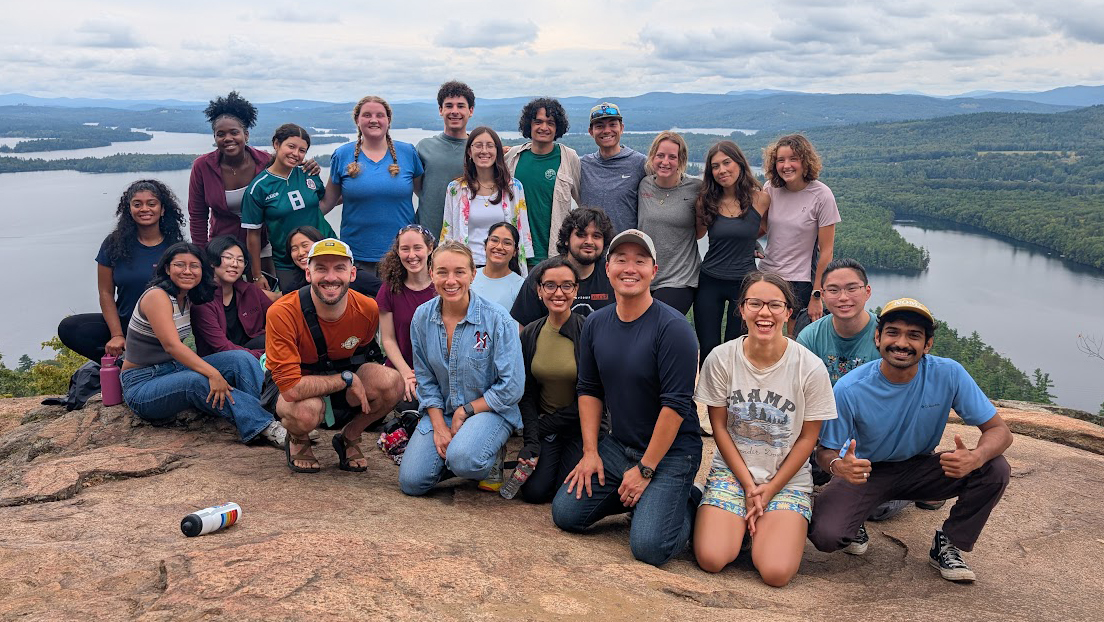Bachelor's in Environmental Science and Engineering

Why pursue a bachelor's degree in Environmental Science and Engineering?
Environmental Science and Engineering (ESE) AB and SB interdisciplinary programs focus on understanding, predicting, and responding to environmental problems. Students receive strong and broad training in physics, chemistry, engineering, ecology, and mathematical modeling, in a way that makes them uniquely understand the connections needed to solve environmental problems. They take advanced classes in energy systems, climate science, hydrology, and environmental pollutants. They gain hands-on experience through field, laboratory, computer modeling, and big data projects, working with ESE faculty who are world leaders in their fields. They can also carry out projects with faculty in other areas of SEAS.
At Harvard College, students choose a "concentration," which is what we call a major. All prospective undergraduate students, including those intending to study engineering and applied sciences, apply directly to Harvard College. During your sophomore spring you will declare a concentration or field of study.
Students interested in Environmental Science & Engineering have the option to pursue:
- Bachelor of Arts (A.B.) in Environmental Science and Engineering
- Bachelor of Science (S.B.) in Engineering Sciences (an ABET accredited program) on the Environmental Science and Engineering Track
Learn about our Environmental Science and Engineering Concentrators >
Requirements
Learn more about the Environmental Science and Engineering requirements.
AB/SM Program
Our AB/SM degree program is for currently enrolled Harvard College students only.
Courses
View current Environmental Science and Engineering courses.
Research Opportunities in Environmental Science and Engineering
Environmental Science and Engineering (ESE) students at Harvard SEAS can immerse themselves in a range of research experiences, allowing them to explore diverse topics such as climate change, sustainable energy, water justice, and environmental health. These opportunities include:
- Summer Internships: Students gain hands-on experience working with industry partners, NGOs, government agencies, and research institutes, tackling projects from renewable energy consulting to ecological fieldwork.
- Faculty Lab Participation: ESE students collaborate closely with Harvard’s distinguished faculty, contributing to cutting-edge research on topics like carbon sequestration, air quality modeling, sustainable materials, and environmental policy.
- Fellowships: Competitive fellowships, such as the Harvard University Center for the Environment (HUCE) and Program for Research in Science and Engineering (PRISE), provide funding and mentorship for students to pursue independent research or join interdisciplinary research teams, often with international fieldwork components.
These experiences allow students to deepen their expertise, develop research skills, and build networks that will support their careers as environmental leaders and innovators.
Learn more about research opportunities at Harvard SEAS.
Learn about the research interests of our Environmental Science and Engineering faculty.
Bachelor's in Environmental Science and Engineering Career Paths
Environmental Science and Engineering concentrators follow a diverse range of career paths after graduation. Many find roles in technical consulting or pursue advanced degrees, while others enter fields such as energy, finance, and government. Alumni also contribute to green technology, management consulting, and technology sectors, as well as research, biotech, and NGOs. These varied outcomes showcase the interdisciplinary nature of the program and its ability to equip students with skills that are valuable across a broad spectrum of industries.
Read about some of our Environmental Science and Engineering Alumni.
Engineering Advising Events and Resources
Get pre-concentrator advice on the SEAS First-Year and Sophomore Advising Events Canvas Page. The page lists upcoming advising events for first-years and sophomores before declaration, has recordings from virtual Webinars and Q&A sessions, and other advising resources.
Scot Martin is the Director of Undergraduate Studies for Environmental Science and Engineering, and the Gordon McKay Professor of Environmental Science and Engineering. If you would like to discuss the ESE curriculum with Prof. Martin, please email smartin@seas.harvard.edu.
Daniel Jacob is the Area Chair for Environmental Science and Engineering and the Vasco McCoy Family Professor of Atmospheric Chemistry and Environmental Engineering. He holds an undergraduate degree in Chemical Engineering and a PhD in Environmental Engineering. If you have any questions or would like to set up an appointment to discuss the ESE concentration and how it aligns with your goals, please email djacob@fas.harvard.edu.
Clubs and Organizations
SEAS-affiliated student organizations are critical to the overall growth of our concentrators as engineering and applied science professionals. These organizations enable our students to pursue passion projects and events in areas of interest that are complementary to the current formal academic curriculum. Learn more about SEAS-affiliated student clubs and organizations.
Learning in the Field
Environmental Science and Engineering students at Harvard SEAS engage in a variety of hands-on field trips that connect classroom learning to real-world challenges. From exploring the Allston District Energy Facility’s dynamic power systems to sampling water quality in the Charles River and analyzing groundwater hydrology at Joint Base Cape Cod, students gain firsthand insights into energy, water, and environmental systems. Field visits to the Marcellus Shale fracking sites and NOAA’s Waquoit Bay Research Reserve further deepen their understanding of sustainable resource management, while trips to the Science and Engineering Complex showcase cutting-edge green infrastructure and building-scale water conservation. These diverse experiences prepare students to tackle pressing environmental issues through experiential learning.
Hands-on Learning in the Classroom
At Harvard SEAS, we are committed to active learning as an integral part of undergraduate education. This approach is supported by our Active Learning Labs. These labs are meticulously designed to equip students with essential skills across the mechanical, electrical, computational, biological, environmental, and design disciplines. In collaboration, the Active Learning team and SEAS faculty develop engaging, hands-on activities that align with educational objectives and enhance coursework. This integrative approach ensures a robust learning environment that fosters practical and theoretical proficiency.